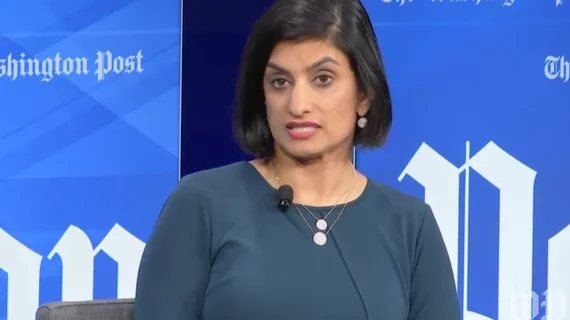Washington implores parents, providers to catch kids up on regular doctor visits
So many parents have held children back from visiting clinicians’ offices during the COVID crisis that CMS is issuing an urgent call to action: Please hold them back no more.
In its initial trumpeting of the plea, the agency points to preliminary Medicaid and CHIP claims data from March through May. Compared with the same period last year, those programs have seen:
- 1.7 million fewer vaccinations for children up to 2 years old;
- 3.2 million fewer physical and cognitive screenings among all children; and
- 7.6 million fewer childhood visits to the dentist.
The COVID-caused nosedive could have serious repercussions in the lives of children at the individual and population levels, CMS suggests, as Medicaid and CHIP cover close to 40 million children of widely varying health statuses.
CMS Administrator Seema Verma, MPH, adds that, as a mother herself, she’s witnessed firsthand the difference childhood screenings, checkups and other nonemergency doctor appointments can make.
“The absence of these vital healthcare services may have lifelong consequences for these vulnerable children,” she says. “I call on states, pediatric providers, families and schools to ensure children catch up on overdue medical, behavioral health and dental appointments as well as childhood immunizations.”
Read the full announcement here and a report with the newly released data here.

